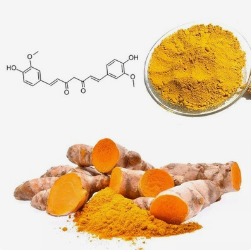
- +86-13363869198
- weimiaohb@126.com

Dec . 01, 2024 09:21 Back to list
Enhancing Curcumin Absorption Through the Synergistic Effects of Piperine
The Potent Combination of Curcumin and Piperine Exploring Health Benefits
Curcumin, the principal active compound in turmeric, has gained extensive attention for its myriad health benefits. This bright yellow chemical is renowned for its anti-inflammatory, antioxidant, and potential anticancer properties. However, curcumin's natural bioavailability is relatively low, which means that the body does not absorb it well. This is where piperine, a compound found in black pepper, comes into play, significantly enhancing the bioavailability of curcumin and creating a powerful synergy.
Understanding Curcumin
Curcumin belongs to a class of compounds known as curcuminoids, which are polyphenols. Its anti-inflammatory properties have sparked interest in its use for treating various ailments, including arthritis, heart disease, and even neurodegenerative diseases like Alzheimer’s. Additionally, curcumin exhibits antioxidant properties that help combat oxidative stress, a condition linked to numerous chronic diseases. Research suggests that curcumin can contribute to overall well-being, promoting a healthier lifestyle.
However, while the potential benefits are vast, curcumin has a significant drawback its low bioavailability. The human body effectively metabolizes curcumin quickly, which limits its effectiveness when taken alone.
The Role of Piperine
Piperine is the alkaloid responsible for the pungency of black pepper. It has its own set of health benefits, including anti-inflammatory effects, antioxidant properties, and potential to enhance nutrient absorption. When combined with curcumin, piperine has been shown to increase the absorption of curcumin by up to 2,000%. This dramatic increase in bioavailability makes the combination a powerful tool for health enthusiasts seeking to maximize the benefits of curcumin.
The mechanism behind this enhanced absorption is related to piperine's ability to inhibit certain enzymes in the liver and intestines that would otherwise metabolize curcumin quickly. By slowing down the metabolic processes, piperine allows curcumin to stay in the system longer, ensuring that the body can utilize it more effectively.
curcumin with piperine

Health Benefits of Curcumin and Piperine Combination
1. Anti-Inflammatory Effects The blend of curcumin and piperine is particularly noted for its robust anti-inflammatory properties. This can provide relief from chronic inflammatory conditions, including arthritis and inflammatory bowel disease (IBD).
2. Antioxidant Support Both compounds contribute to reducing oxidative stress in the body, helping to neutralize free radicals and support overall health.
3. Weight Management Some research suggests that curcumin, enhanced by piperine, may play a role in weight management by influencing fat metabolism and reducing the formation of new fat cells.
4. Improved Brain Function Curcumin has been shown to increase levels of brain-derived neurotrophic factor (BDNF), a protein linked to improved brain function. Together with piperine, it may further enhance cognitive function and potentially protect against neurodegenerative diseases.
5. Cancer Prevention Preliminary research indicates that curcumin may inhibit the growth of cancer cells. Piperine's role in improving curcumin’s absorption might make this combination an interesting avenue for research in cancer prevention strategies.
Conclusion
The combination of curcumin and piperine represents a powerful fusion of nature’s potential health boosters. By significantly enhancing the bioavailability of curcumin, piperine allows individuals to harness its full spectrum of benefits. While both compounds showcase remarkable properties on their own, their synergistic relationship offers a more effective approach to health and wellness. As always, individuals should consult with healthcare providers before starting any new supplement regimen, particularly for specific health conditions or concerns. Incorporating curcumin and piperine into one’s diet may be a step toward a healthier lifestyle and improved well-being.
-
High Quality SGT-163 CAS 1099-87-2 Supplier & Factory Reliable SGT-163 Manufacturer
NewsJun.10,2025
-
High Quality 3-Chloropyridine CAS 626-60-8 - Reliable Factories & Suppliers
NewsJun.10,2025
-
CAS 157115-85-0 Bulk Suppliers - High Purity & Low Prices
NewsJun.10,2025
-
High Purity PMK Ethyl Glycidate Manufacturer 99% Quality Supply
NewsJun.10,2025
-
Pure CAS 57-85-2 Testosterone Propionate Pharma Grade Supplier
NewsJun.09,2025
-
Premium Tadalafil CAS 171596-29-5 Suppliers & Factories
NewsJun.09,2025